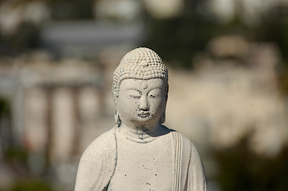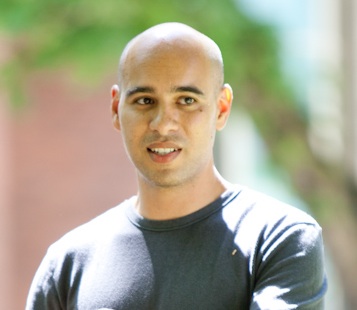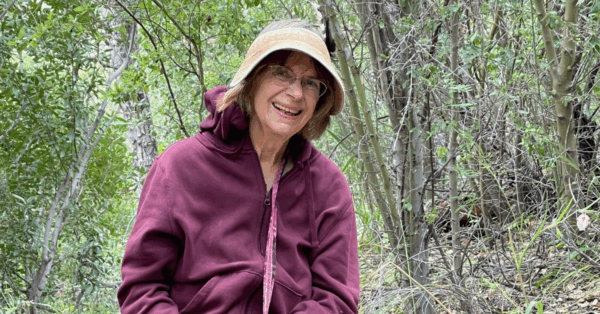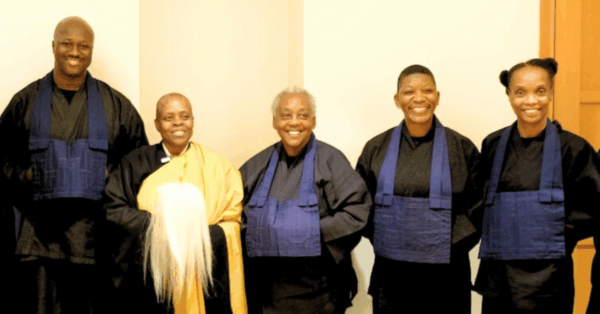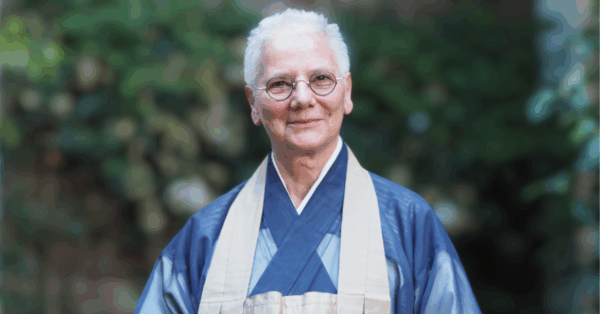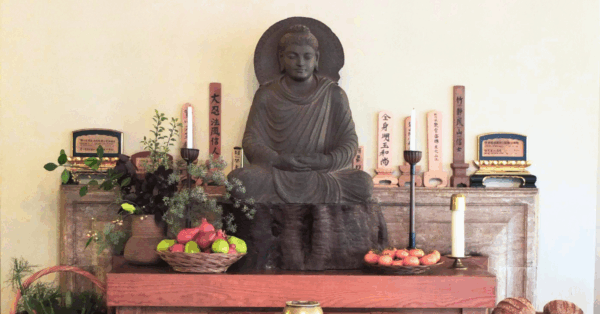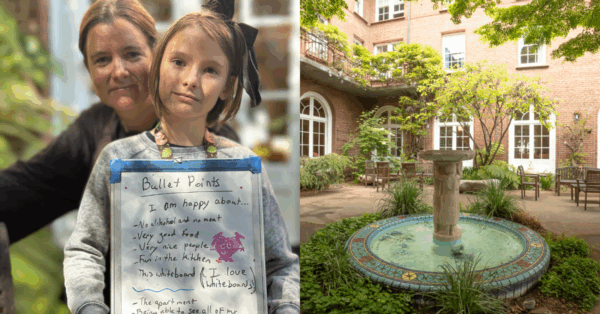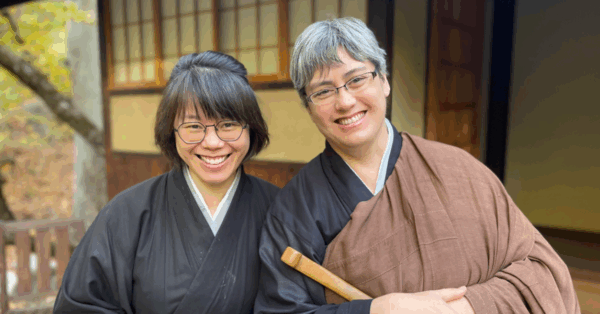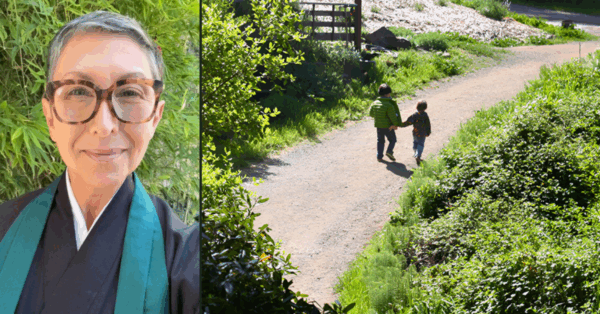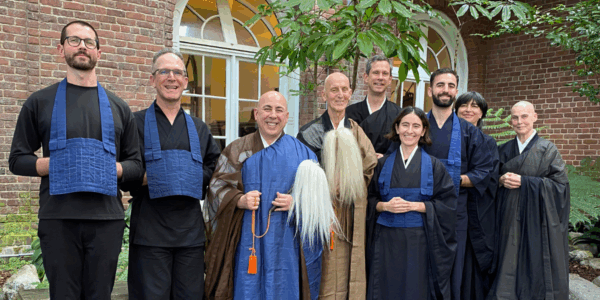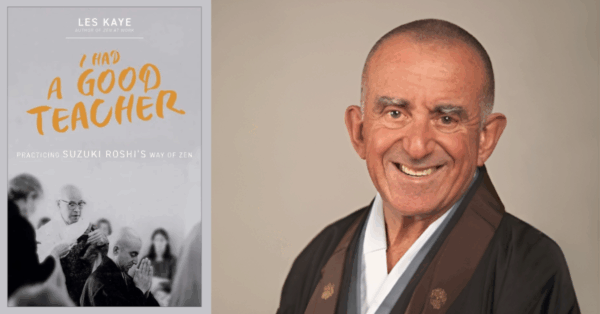Leo Babauta, creator of the acclaimed blog Zen Habits and author of three best-selling books (The Effortless Life, Focus, and The Power of Less), transformed his own life and now works with others toward identifying and practicing life-changing new habits. Using mindfulness to tap inner resources, he offers means for dealing with the constant stream of interruptions, distractions and technology in our daily lives. He approaches the search for peace attentively and simply, as his Zen Habits motto suggests: Smile, breathe, and go slowly. His workshop Flexible Mind, Flexible Heart: How to be Happy at Work (co-led by Zesho Susan O’Connell, San Francisco Zen Center’s president) will be September 6-9, at Tassajara–a good place to “smile, breathe and go slowly.”
Interview by Sachico Ohanks, SFZC Communications Coordinator
Sachico: Could you describe one or two common un-mindful habits that people practice at work and how they get sucked into them?
Leo: We often create expectations in the mind about how our day will go and how others should act, and are often unaware that we’ve created these entirely made-up ideals. They’re not real. And of course reality never matches up to these ideals, so we become frustrated, angry, anxious.
We also tend to get sucked into distraction (online distractions are most common these days), simply because we want to avoid the discomfort of whatever we don’t want to work on. The discomfort comes because we’re not good at the task, or the outcome is uncertain, or we’re afraid of looking bad, or it’s very difficult, or we’re not used to focusing on one thing for very long, or we don’t have enough information to do the task. So our minds run from the discomfort and we un-mindfully run towards distraction.
Sachico: You name your retreat “Flexible Mind, Flexible Heart: How to be Happy at Work.” How does flexibility support happiness? Especially in a work environment where “driving for results” can be a requirement? Could you describe an example?
Leo: Flexible mind allows us to hold loosely to these ideals, expectations, and desired results, so that when things inevitably don’t measure up to our ideals, we don’t suffer as much. We can pivot, adapt, learn, and bend so that we navigate the changing landscape as it changes, rather than trying to stay on a fixed and doomed course that doesn’t adapt as things change.
When you’re expected to “drive for results”, you should of course do your very best. But let’s take for example what happens when things don’t go your way — what do you do? You can get frustrated and stressed, which doesn’t help your performance. You can also give up, because it seems too hard.
Or you can breathe, let go of your ideals, adapt to what’s changed, work with how things are now (rather than how you thought they’d be), and stick with the uncomfortable situation even though your mind wants to run. You can work with everyone involved so they’re helping to adapt and come up with solutions. You cannot get frustrated, but instead need to see it as a learning opportunity.
Sachico: How can one maintain a sense of inner peace in a commercial or service industry where “delighting the customer” is what you are hired to do and the customer doesn’t recognize your aspiration? Could you describe an example?
Leo: Delighting the customer is an amazing aspiration, but it will of course not be realized every single time. This is where flexible mind becomes so important — if you allow that to frustrate you, this frustration will be reflected with the next customer you serve, and then they’re also less likely to be delighted with your frustration-filled service. And that will lead to more frustration, and so on.
Instead, hold loosely to your aspiration, and see what you can learn from the unhappy customer. Is there something you could do better to delight them next time? Ask them, or reflect on what might have happened, from their point of view. With this kind of flexible mind, you can also let go of that failure (because you’re not holding rigidly to an idea of success), and start afresh with your next customer. One customer at a time, you can do your very best, without holding too tightly to what you’d like the outcome to be.
Sachico: Could you describe a tool that, from your experience, really supports people in changing unhealthy work habits? Especially in a work environment in which the individual is “going it alone?” Could you describe an example?
Leo: Two tools: mindfulness, and a small community. These can both work even if you don’t have others in your work environment to help you.
For example: practice mindfulness with a few minutes of meditation each day. This practice will help you when you want to change your unhealthy work habits, such as holding onto expectations of how others should act. When those expectations come up, and you start to sense frustration, you can mindfully pause, and sit with the frustration, until you let go of the ideal and allow yourself to react appropriately (not out of frustration).
With the second tool, a small community, if you have no one at work to help you, you can form a group of supportive friends or family, or find people in an online forum, and keep in contact each day or a couple times a week. In this community, you can tell each other what habit you’re trying to change, and report back to them regularly about how it’s going. If you have problems, ask for help. This kind of community can be incredibly powerful in changing any kind of habit.
Sachico: Are there qualities about being at Tassajara Zen Mountain Center that particularly support the practices you teach?
Leo: Tassajara is a special place, where you can leave behind the distractions of your busy life, not have to worry about cooking or cleaning or other errands, disconnect from the online world for a few days, and just focus on your inner habits. This is rarely possible elsewhere without extraordinary steps. It’s also a beautiful, peaceful setting, with morning meditation sessions, that help you take a step back and reflect on what you’ve been doing in your daily life.
Leo Babauta and Zensho Susan O’Connell will lead Flexible Mind, Flexible Heart: How to be Happy at Work from Friday, September 6, through Sunday, September 9, at Tassajara Zen Mountain Center.


